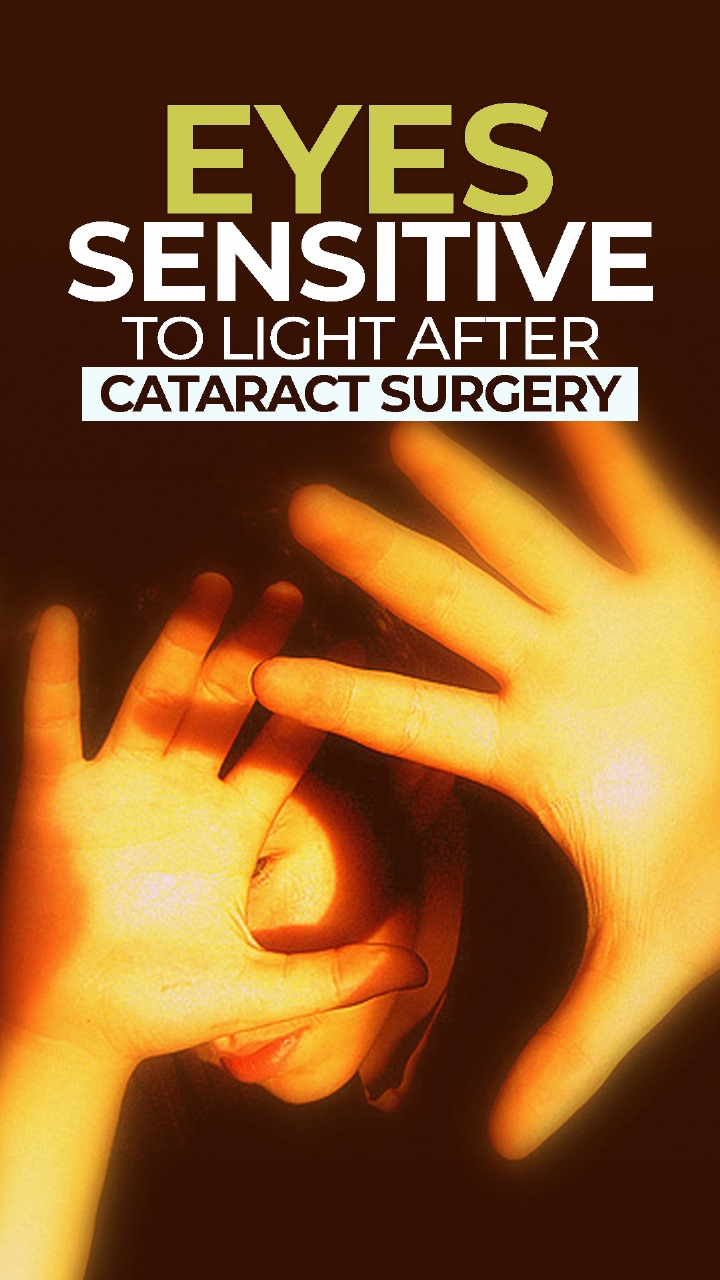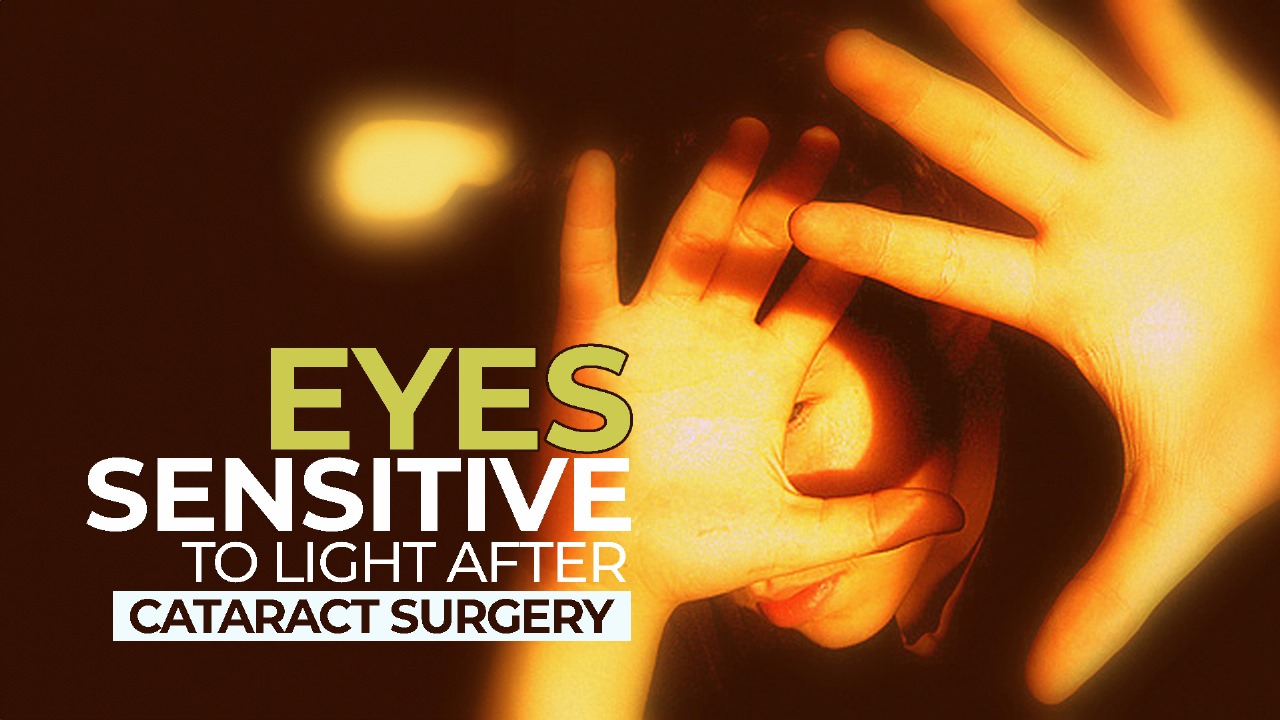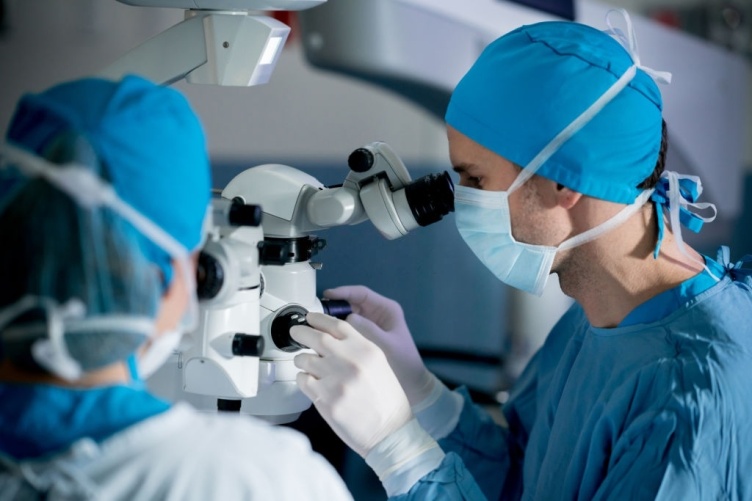

Do Eyes Stay Sensitive to Light After Cataract Surgery? Insights from Thane's Eye Experts
Eyes sensitive to light after cataract surgery, one of the most common and effective eye procedures, often results in a temporary increase in light sensitivity, a condition known as photophobia. Patients may experience anything from mild discomfort to severe irritation when exposed to various light sources. This article explores the causes, duration, and effective management of light sensitivity post-cataract surgery. We also discuss visual problems after cataract surgery that can impact recovery, offering a thorough understanding of what to expect and how to navigate the healing process.
Causes of Light Sensitivity After Cataract Surgery
Photophobia after cataract surgery primarily results from the significant changes that occur inside the eye. During the procedure, the eye’s cloudy natural lens is replaced with a clear artificial lens. This new lens allows light to enter the eye differently, which can initially lead to increased light sensitivity. Furthermore, the surgical process itself can induce an inflammatory response as part of the body’s natural healing mechanism, exacerbating sensitivity to light.
Understanding the Duration of Light Sensitivity
The duration of light sensitivity varies among individuals. Most patients experience this sensitivity for a few days to several weeks after surgery. The question of how long are eyes light sensitive after cataract surgery depends on several factors, including the individual’s overall health, the type of cataract surgery performed, and how well the post-operative care instructions are followed.
- Overall Health: A patient’s general health can affect how quickly they recover from surgery.
- Type of Surgery: Different surgical techniques can influence the extent and duration of post-operative symptoms.
- Adherence to Care Instructions: How closely patients follow their post-operative care instructions can also impact their recovery speed.

Managing Light Sensitivity Effectively
Managing photophobia involves several practical steps that can significantly alleviate discomfort:
- Wear Sunglasses: Sunglasses with high UV protection are crucial when outdoors to protect the eyes from intense sunlight and other bright environments.
- Adjust Indoor Lighting: Creating a comfortable indoor lighting environment with soft, ambient light reduces strain and sensitivity.
- Limit Screen Time: Reducing the amount of time spent in front of screens can help minimize eye strain. If necessary, use settings that reduce screen brightness or filter blue light.
- Protective Eyewear Indoors: For indoor environments with unavoidable bright light, consider wearing light-filtering glasses to ease the transition for sensitive eyes.

When to Seek Further Medical Advice
While light sensitivity is a common and typically temporary side effect of cataract surgery, it’s important to monitor the symptom’s progression. If the sensitivity does not decrease over time or is accompanied by pain, significant discomfort, or vision changes, it is crucial to consult your Eye Cataract Specialist in Thane. These could be signs of complications such as infection, inflammation, or issues with the intraocular lens.
Preventive Measures and Best Practices for Recovery
To ensure the smoothest recovery and minimize light sensitivity, patients should:
- Follow All Post-Operative Instructions: Adhering strictly to the care guidelines provided by your surgeon.
- Attend Follow-Up Appointments: Regular check-ups help monitor healing and allow for timely interventions if complications arise.
- Rest and Protect Your Eyes: Giving your eyes adequate rest after surgery is crucial for healing. Avoid activities that might strain your eyes during the initial recovery period.
Conclusion
Light sensitivity after cataract surgery is generally a temporary condition that resolves as the eye heals. Understanding what to expect and how to manage the symptoms can significantly ease the recovery process. Always follow the post-operative care instructions provided by your Best Eye Cataract Surgeon in Thane and keep them informed about your recovery progress. With the right care, you can soon enjoy the benefits of improved vision that cataract surgery offers, without discomfort from light sensitivity.
Maintaining good contact lens hygiene, being vigilant about allergy symptoms, and adopting a healthy lifestyle can make a significant difference. Consult with your eye care professional regularly to ensure your eyes remain healthy and free from infections.
Frequently Asked Questions
Increased sensitivity to light, or photophobia, typically results from the introduction of a new artificial lens and the natural inflammatory response of the eye as it heals. These changes affect how light is perceived until the eye fully adjusts to the new conditions.
The duration of light sensitivity can vary from a few days to several weeks, depending on factors like the patient’s overall health, the surgical technique used, and adherence to post-operative care instructions.
Yes, patients can manage light sensitivity by wearing sunglasses with UV protection, using soft indoor lighting, limiting screen time, and possibly wearing protective eyewear indoors if necessary.
You should consult your eye doctor if light sensitivity persists beyond the typical recovery period, or if it’s accompanied by pain, severe discomfort, or a noticeable decline in vision. These symptoms could indicate complications that require professional attention.
While light sensitivity is a common response to eye surgery, its intensity can be minimized by following all post-operative care instructions, using prescribed eye drops, and protecting your eyes from harsh lighting conditions.
If your light sensitivity shows no signs of improvement, it’s important to revisit your eye specialist. Your doctor might adjust your treatment plan or investigate other potential causes of prolonged sensitivity.
Not necessarily. Light sensitivity is a normal, expected side effect following cataract surgery. However, if this condition is severe or worsening, it could be indicative of other issues, which should be evaluated by your surgeon.
Absolutely. Adjusting your home lighting to softer, more ambient options can significantly reduce discomfort. Avoiding direct or overly bright lights can also help your eyes adjust more comfortably during the recovery phase.
Immediately after surgery, protect your eyes by wearing sunglasses outdoors, avoiding direct sunlight, and resting your eyes frequently. Following your surgeon’s specific aftercare instructions, including any recommended eye protection, is crucial.
Your surgeon may prescribe eye drops that help manage inflammation and pain, which can indirectly reduce light sensitivity. Always use medications exactly as prescribed and discuss any concerns with your healthcare provider.
